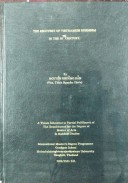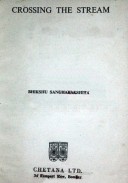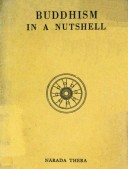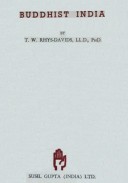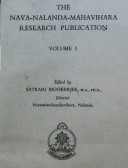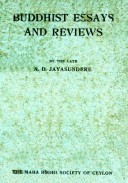Tìm Sách
Sách tiếng Anh-English >> The recovery of Vietnamese Buddhism in the 20™ century.
Thông tin tra cứu
- Tên sách : The recovery of Vietnamese Buddhism in the 20™ century.
- Tác giả : Thích Nguyên Chơn
- Dịch giả :
- Ngôn ngữ : Anh
- Số trang : 98
- Nhà xuất bản : Mahachulalongkornrajavidyalaya Ụniversity Bangkok, Thailand.
- Năm xuất bản : 2008
- Phân loại : Sách tiếng Anh-English
- MCB : 12100000008283
- OPAC :
- Tóm tắt :
A Thesis Submitted in Partial Fulfillment of
The Requirement for the Degree of
Master of Arts
In Buddhist Studies
International Master’s Degree Programme
Graduate School
Mahachulalongkornrajavidyalaya Ụniversity
Bangkok, Thailand.
2008/2551 BE
Thesis Title: : The Recovery of VietnameseBuddhism in the 20 Century.
Researcher: Ven. Nguyễn Khuông Dẫn
Degree: Master of Arts (Buddhist Studies)
Thesis Supervisory Conunittee : Asst. Prof. Phra Suthithammanuwat,Pali IX, M.A, Ph.D : Ven. Prof. Lê Mạnh Thát, B.A, M.Phil, Ph.D (Wisconsin) : Dr. Veerachart Nimanong, B.A, M.Phiỉ, Ph.D
Date of Graduation: December 29, 2008
Abstract
This thesis is a research consisting of five chapters to study the history of Vietnamese Buddhism. Thereíòre, objectives of the thesis are to research on historical events of Vietnamese Buddhism, especially the Buddhist recovery movement on the 20th century. The first part of this thesis surveys a brief history of Vietnamese Buddhism up to the early 20!h century. Its puipose intends to provide a general Outlook about Vietnamese Buddhism from early beginning of Buddhist entering to Vietnam as well as the Buddhism in later centuries.
The second part focuses on the recovery of Vietnamese Buddhism in the 20* centuiy. Thus, this main part will analyze a full process of the Buddhist recovery in Vietnam incluđing, causes and íòrces leading to the recovery, ũiitiators, sequence and development as well as its implications for the post-recoveiy period that there has not been a completed academic work done beíòre.
Finally, this work also expresses signiíicances of the recovery of Vietnamese Buddhism and the nation on the aspect of doctrinal development. Signihcantly, this will help us íiilly understand the Vietnamese Buddhism not only Buddhist associations, educational Systems, Buddhist schools and Sangha but the teachings and practicing methods of monastic and lay people as well.
After doing this academic work, the researcher finds out that Buddhism was not transmitted into Vietnaih by Chinese as many people said but directỉy from India through the appearance of an Indian monk named Phật Quang (P. Đuddhãỉoka). Moreover, the time that Buddhism approached Vietnam must be markeđ on the mỉddle of the 3* century B.c instead of the íirst century of commom era. Additionally, the essential nature of the Recovery of Vietnamese Buddhism in the 20* Century was not really reviving Buddhism as usual, because Buddhism has never fỉnished in this country but it was a real modemization of Buddhism on many íĩelds in order to make it better as well as to meet urgent needs of the age. Finally, the íull process of this Buddhist recovery lasted nearly a century instead of only fifty years as many reseachers mentioned before.
Table of Contents
Page No.
Approval Page i
Abstract ii
Acknovvledgements iv
List of Abbreviations vi
Chapter I: Introduction
1.1 Background and Signiíicance of the Problem 1
1.2 Objectives of the Study 3
1.3 Statement of Problem 4
1.4 Deíĩnitiọns of the Terms 4
1.5 Review of the Related Literatures 5
1.6 Method of the Study 6
1.7 Expected Finding and BeneSts of theStudy 6
Chapter II: The Brief History of Vietnamese Buddhism
from Early Beginning up to the 20th Century
2.1 From Early Beginning to the Independent Nation of Vạn Xuân Founded by Lý Nam Đế (544). 7
2.1.1 Ways and Years of Buddhist Entering 7
2.1.2 Luy Lâu Buddhist Center 10
2.1.3 The Buddhist Situation in thẹ First Period 10
Typical Representatives and Setting of 11
Buddhism from the 2nđ and 3th Centuries
2.1.5 Vu Pháp Lan, Vu Đạo Thúy and Buddhism in the Fourth Century
2.1.6 Đạo Cao, Pháp Minh, Lý Miễu through the Appearance of ‘Six Letters’ and Buddhism in the Fifth Centuiy
2.1.7 Huệ Thắng, Đạo Thiền and the End of ‘Magic Buddhism’
2.2 From Vinitaruci Thiền School to King Lý Thái Tông(1054)
2.2.1 Vinitaruci School
2.2.2 Vô Ngôn Thông School
2.2.3 Practicing Method of the Vô Ngôn Thông School
2.2.4 Some Features of Buddhism from the Period of King Lý Nam Đe to King Lý Thái Tông
2.2.4.1 Movement - Going to India to Study Abroad
2.2.4.2 Movement - Going to China for Preaching Dharma
2.2.4.3 Using Prophetic or Oracle Practice to Nurture the National Conscience of Independence and a Rare Victory by Non-Violent Revolution in History
2.3 From King Lý Thánh Tông (1054) to King Trần Thánh Tông (1278)
The Recovery of Vietnamese Buddhỉsm in the 20* Century
Problem and Signiíicance of the Recoveiy The Political and Social Setting Leading to the Buddhist Recovery in Vietnam
3.2.1 Reasons of the Recovery in Vietnam Initiators of the Recoveiy
The Buddhist Recovery in the South
4.2 4.1.2 Buddhist Magazines and Newspapers on Quốc Ngữ
Development in Education and Training
4.2.1 Buddhist Study in Present Years
4.2.2The Institute of Higher Buddhist Studies
4.2.3 The Vietnam Buddhist University
4.2.4Training and Propagating
4.2.5 Dharma Schools for Laypeople
4.3 The Development of Practice Methods
4.3.1 Trúc Lâm Thiền School
4.3.2 Meditation Centers ofTheravãda Buddhism
4.2 4.1.2 Buddhist Magazines and Newspapers on Quốc Ngữ
Development in Education and Training
4.2.1 Buddhist Study in Present Years
4.2.2The Institute of Higher Buddhist Studies
4.2.3The Vietnam Buddhist University
4.2.4Training and Propagating
4.2.5 Dharma Schools for Laypeople
4.3 The Development of Practice Methods
4.3.1 Trúc Lâm Thiền School
4.3.2 Meditation Centers ofTheravãda Buddhism
Chapter V: 5.1 Conclusions and Suggestions Conclusions
5.2 Suggestions for Further Research
Bibliography Biography of Researeher
 Facebook
Facebook
 Google
Google
 Google+
Google+
